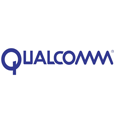 The contemptuous label of “cybercriminals” is the figurative sword with which the Nigerian image is generally being hacked and left for dead.
The contemptuous label of “cybercriminals” is the figurative sword with which the Nigerian image is generally being hacked and left for dead.
According to Prof Biko Agozino of Virginia Tech university: “There is a longstanding demonisation of Nigeria as being full of criminals.”
This unfortunate generalisation, especially in the media, has a far-reaching negative impact on the overall image of Nigeria as a nation. It’s become the prism with which most Nigerians are viewed and judged globally.
It stems from the country’s vulnerability in a specific category of cybercrime known as “419” and its offshoots. Mohamed Chawki, president of the International Association of Cybercrime Prevention, explains that the term 419 “is coined from section 419 of the Nigerian criminal code dealing with fraud. Nowadays, the axiom ‘419’ generally refers to a complex list of offences which, in ordinary parlance, are related to stealing, cheating, falsification, impersonation, counterfeiting, forgery and fraudulent representation of facts.”
The most widely known component of “419” is cyber fraud — the culprit behind the blanket labelling of most Nigerians as cybercriminals.
But cybercrime, in essence, encompasses a wide range of crimes other than cyber fraud. These online crimes include cyber stalking, cyber hate speech, cyber espionage, cyber terrorism, cyber colonialism, revenge porn and cyber bullying, among others. Nigeria is exclusively implicated in cyber fraud. The country has no significant record of other forms of cybercrimes such as cyber espionage, cyber stalking and revenge porn found predominantly in Western nations.
The key point here is that the term “cybercrime” is misleading, which is why it’s reasonable to call into question Nigeria’s reputation. It’s an image nonetheless buttressed by the US Federal Bureau of Investigation (FBI) and its Internet Crime Complaint Centre, which has ranked Nigeria third in the world behind the US and UK.
But the FBI centre’s claims are problematic because in Nigeria cybercrime is exclusively cyber fraud (or scams). What constitutes “cybercrime” in most Western nations differs from the particularities of cybercrime in Nigeria. They differ possibly because jurisdictional cultures and nuances apply online as they do offline.
Money is undoubtedly a primary motivation for online fraud. The primary benefit of a Nigerian swindler is financial. That monetary pursuits propel the problem is well illustrated in the examination of 150 scam letters by Prof Afe Adogame of Princeton University.
Corruption among some government officers and some high profiled politicians also plays a role. Corrupt practices promote cybercriminal activities.
Another contributory factor is the link between e-waste and online fraud. E-waste refers to discarded electronic appliances such as mobile phones and computers. The dumping of e-waste from countries such the UK and the US is common in Nigeria and Ghana and there’s a strong correlation between dumping and the physical locations of online fraud victims.
The statistics are selective
Why is Nigeria ranked the third worst nation for cybercrime perpetrators?
The FBI’s Internet Crime Complaint Centre was established in May 2000 to limit economic losses through internet crime. It acts primarily by reviewing victims’ complaints. These number about 300 000/year.
The centre’s data looks robust because they are drawn directly from victims. But this is deceptive. Of particular concern is the fact that complaints are exclusively framed by victims. This highlights the centre’s over-reliance on participants’ honesty and accuracy.
The data’s probity is also undermined by the fact that only a small percentage of people voluntarily report themselves as victims of cybercrime. Even the FBI has previously noted that globally less than 10% of people report themselves as victims of cybercrime.
Apart from cybercrime being under-reported, the vast bulk of cybercrime goes undetected. For example, people who see themselves as victims of law enforcement are unlikely to flag their predicament to the FBI.
Finally, it’s impossible to tell the extent to which the entire process is shaped by the media and political discourses which tend to amplify the moral panic about Nigerian 419 fraud.
Based on these underlining factors, it’s reasonable to argue that the cybercrime league table is a simplified, limited and an incomplete representation. The claim that Nigeria is ranked third globally is therefore questionable.
Beyond the league tables
Over 90% of crimes reported to the complaints centre between 2006 and 2010 were primarily about cyber fraud. Under this specific category, Nigeria was found to be the third most cited nation. But what if categories such as cyber espionage and cyber bullying were covered? Would the outcome be different?
A different approach might be useful. One such approach is the Tripartite Cybercrime Framework, which I recently proposed. This framework helps to simplify league table claims into a nuanced umbrella which includes categories such as, for example, socioeconomic cybercrime and geopolitical cybercrime.
If the complaints centre’s reports were viewed through this lens, the results could be interpreted differently. This would, for example, lead to Nigeria being ranked third in the socioeconomic category. And naturally in the geopolitical category Nigeria would be ranked much lower. It would also have positive impacts on efforts of law enforcement agencies in Nigeria such as the Economic and Financial Crime Commission EFCC in controlling the activities of cybercriminals.
It’s of utmost importance for the term “cybercrime” to be revisited and redefined because it has huge consequences. It has, for example, influenced the framing of most scholarly endeavours about Nigeria which echo the sense of ‘moral panic’ over the “419” phenomenon. It also affects how Nigeria is portrayed in the Western media and how it’s viewed in the world.
Given that repeating discourses normalise their claim, the problem is deep. The Conversation
Suleman Ibrahim is PhD researcher, Information Security Group, Royal Holloway
This article was originally published on The Conversation
Source: Tech Central
Tags: Africa, ICT News, Nigeria









